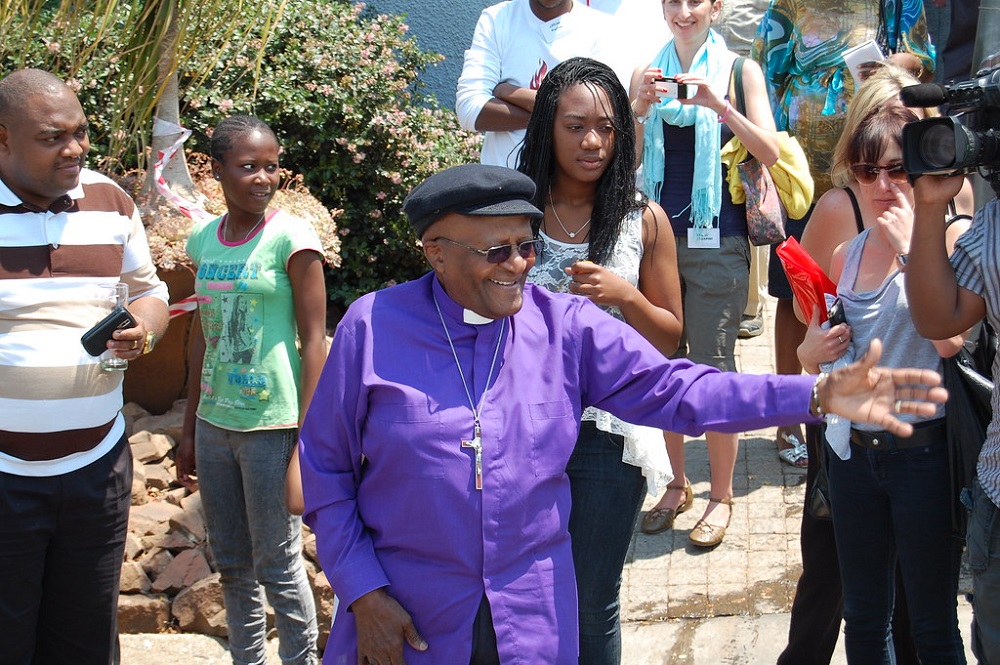Former Welsh Secretary pays tribute to social activist Desmond Tutu

Former Welsh Secretary Lord Peter Hain has paid tribute to Desmond Tutu, the cleric and activist who was a key figure in the struggle against apartheid in South Africa.
The retired archbishop’s death at the age of 90 was announced earlier this morning.
A statement released on behalf of his family by the Tutu trust said he died ‘peacefully’ at a care centre in Cape Town, aged 90.
In an interview with the BBC, Lord Hain, whose South African parents were anti-apartheid activists and who himself joined the British Anti-Apartheid Movement in 1967, said:
“Desmond Tutu was somebody who at the height of the apartheid struggle, when Nelson Mandela and his leadership comrades in the freedom struggle were locked up on Robben Island roused the faithful, inspired people and also had a way of engaging that was soft and yet hard.
“He would speak bluntly but he would also speak engagingly and sympathetically, and he did so. He spoke truth to power, whether it was the old apartheid rulers, that inflicted such evil and suffering and racist tyranny on the majority of South Africans, or after the transformation, he spoke truth to power to Nelson Mandela and his successors, especially Jacob Zuma, calling out the corruption and the cronyism that has so disfigured and damaged the country in more recent years.
Inspired
“Desmond Tutu across the world inspired human rights activists as well, and I think has a special place in everybody’s memory, certainly very sad, as I am today, in mine.
“He saw both the horror of things but also the beauty of things and the humour in almost any situation.”
“What made people inspired by him is that whether he was speaking out against the homophobic oppression in Uganda or the decimation of human rights in Myanmar Burma, or whether it was in anti-apartheid struggles inside South Africa, he always spoke the truth, however uncomfortable it was to those in power or even those on his own side, who he sometimes called out if he saw wrong doing.”
The former archbishop emerged as a key figure in the liberation struggle in South Africa in the mid-1970s and was vocal supporter of international sanctions against the nation’s apartheid regime.
He won the Nobel peace prize in 1984 and was appointed archbishop of Cape Town, the effective head of the Anglican church in the country in 1986.
Tutu was diagnosed with prostate cancer over 20 years ago and in recent years he was hospitalised on several occasions to treat infections associated with illness.
Support our Nation today
For the price of a cup of coffee a month you can help us create an independent, not-for-profit, national news service for the people of Wales, by the people of Wales.





